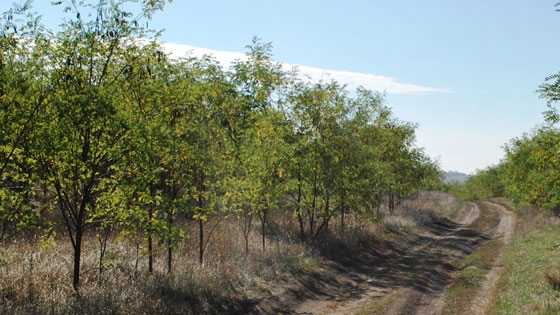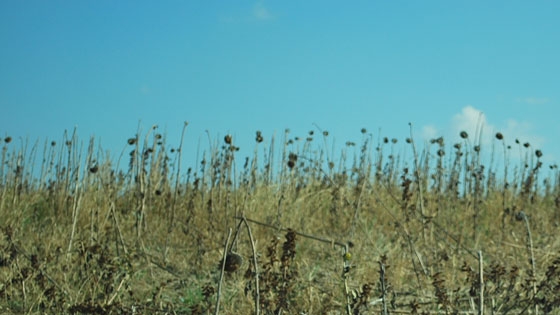Only 11% of Tree Cover
Only 11 percent of Moldova's land is covered by trees; tree roots stop the erosion caused by water and wind. With support from the World Bank, Moldova is planting trees with the goal of increasing forest cover to 15 percent. The idea is to stabilize the ground, protect vital watersheds, and improve the quality of the air.
In Hirtop, people support the plan, says the village's mayor, Vladimir Medoni. "The main benefit of this is that the degraded land is improved, and the people here benefit from the trees and improved pastures."
Gheorghe Rabei, a councilman from Cobusca, agrees, saying people can easily see that the project helps them. "Since we agreed to improve these lands, erosion has lessened. And in the future we hope that people in the village will be able to get fuel wood from the trees." Other ideas include beekeeping, pheasant hunting, foraging for mushrooms in the fall, and using the new forests as a place to simply relax.



